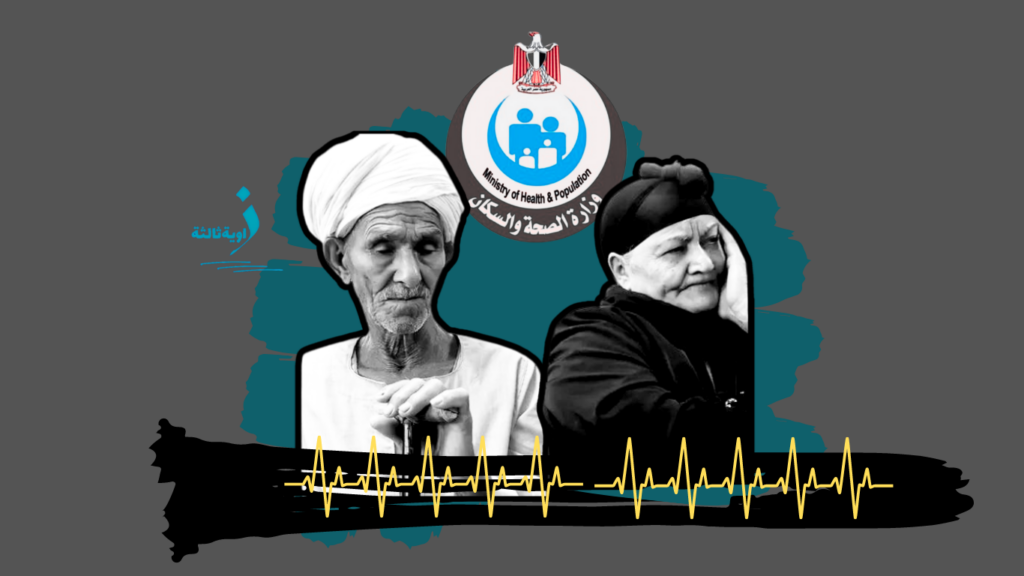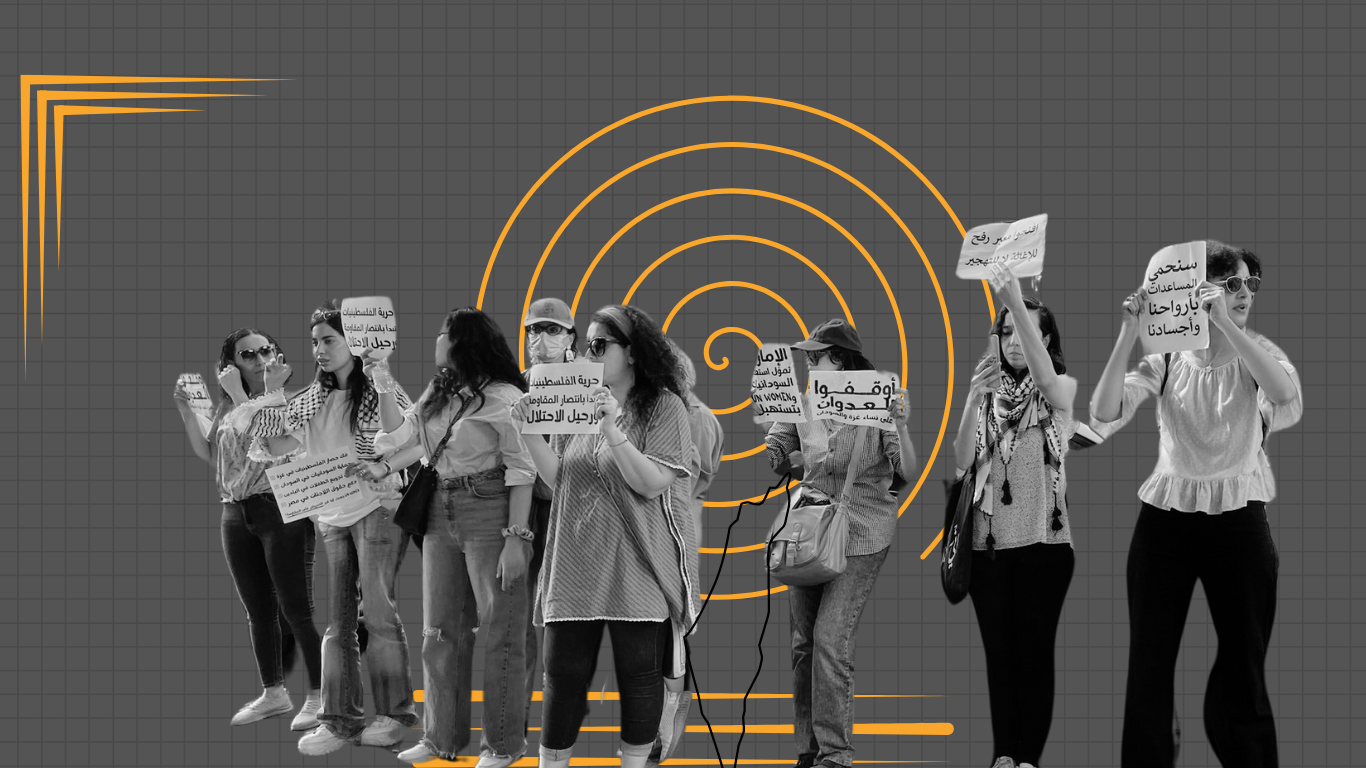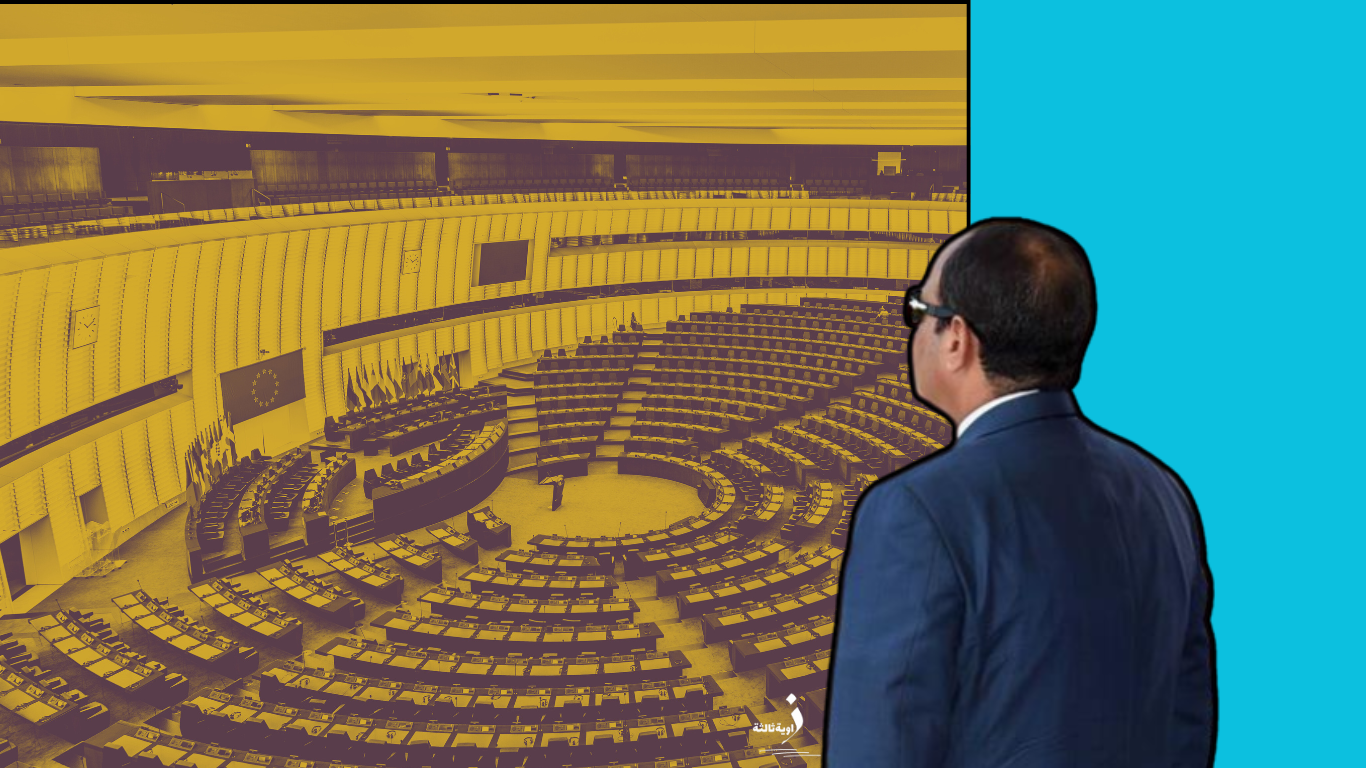As the symptoms of her bronchial allergy worsened, Hala Abdel Latif (33 years old) headed to one of the respiratory hospitals affiliated with the Ministry of Health seeking medical service suitable for her deteriorating economic situation. Hala had always relied on the examination ticket to receive medical check-ups, then purchasing treatment from the subsidized hospital pharmacy. The cleaning worker was shocked when she tried to pay for the examination ticket at the hospital, as she used to pay only two pounds, but the employee informed her that the ticket price had increased to ten pounds by a decision of the Ministry of Health.
In the beginning of this month, the Official Gazette published the new regulations issued by the Egyptian Ministry of Health in collaboration with the Ministry of Local Development on February 26th, aiming to regulate public hospitals and treatment service centers affiliated with the ministry’s directorates in the governorates. According to these regulations, the percentage of free beds in the internal departments of these hospitals has been reduced to 25% of the total beds, compared to 60% in the previous regulations, with discounts of up to 30% of the treatment cost granted to those in need.
Regulation No. 75 of the year 2024 included raising the prices of outpatient clinic tickets, starting from ten pounds up to fifty pounds in public hospitals, and five pounds in health units, with the possibility of multiplying each by five times, with the approval of the relevant health directorate. Whereas the old regulations only required collecting one pound under the heading of “in exchange for a medication package.” Under the new regulations, Decision No. 239 of 1997 was repealed, as well as any decision contradicting the provisions of this decision and the accompanying basic regulations.
Within the framework of the new regulations, the Minister of Health, Dr. Khaled Abdel Ghaffar, issued a decision specifying the value of examination in specialized clinics of public hospitals, with prices ranging from 15 pounds for a general practitioner to 45 pounds for a consultant, in addition to another decision limiting the dispensing of free medications from outpatient clinics to only one category.
Health Privatization
The new regulations have re-priced the health services provided by government health facilities under the two ministries, except for compulsory vaccinations for children, emergencies, and public health initiatives which remain free, to support the provision of hospital operational necessities and to provide distinguished medical service to all citizens.
The new regulations introduced a provision specifying the eligible beneficiaries for free treatment in these hospitals, and restricted them to six categories: recipients of the solidarity and dignity pension, disabled individuals holding integrated service cards, and the families of martyrs and injured members of the army and police. According to the regulations, these categories receive treatment without any procedures. As for the rest of the categories, including those without health insurance or healthcare coverage, and cases of emergencies and accidents requiring immediate intervention to save the patient’s life, or those whose conditions are feared to worsen, the regulations stipulate that they must obtain a recommendation from the hospital’s social research committee and subsequent approval from the hospital director.
On the other hand, the regulations left the determination of the mechanism for treating the financially incapable to the discretion of the hospital director in granting them a discount not exceeding 30% of the service costs after deducting the value of medications and supplies.
Ihab El Taher, former Secretary-General of the Doctors’ Syndicate, criticized the provisions of the new regulations, explaining that reducing the support provided for medical services constitutes an additional burden on approximately 40 million citizens who are not covered by health insurance.
El Taher, speaking to “Zawia3”, explained that the greater burden is not on the cost of the examination ticket, but on the medical tests whose prices have increased within medical hospitals after they were provided for free. This means that there are citizens who will not be able to undergo those tests, in addition to the decision to dispense only one medication for free at outpatient clinics, whereas three medications used to be dispensed.
El Taher believes that with the issuance of these regulations, the era of free treatment has ended, and the privatization of health care within the public sector has been completed, which began with the banning of providing meals for resident doctors in 24-hour shifts, in implementation of the recommendations of the Debt Fund and in compliance with the wishes of creditors.
On the other hand, Dr. Alaa Ghanem, responsible for the right to health at the Egyptian Initiative for Personal Rights and an expert in health sector reform, disagreed with describing the treatment as free. He believes that the medical service obtained by citizens from government hospitals is essentially funded by taxes collected by the state from citizens, and disbursed from the state treasury to public hospitals.
In his conversation with “Zawia3”, he added that the term “free treatment” means that the state “improves” the conditions for citizens, which is not true because there is a general state budget funded by taxes and GDP, and a portion of its allocations should go to the health and education sectors, meaning that citizens receiving medical service from public hospitals have a right and not a gift. He pointed out that with the issuance of these regulations, the public sector owned by the state has turned into a private sector, which is considered privatization within the public sector.
The expert in health sector reform explained that with these regulations, the state has resorted to using private sector methods within the public sector to collect the cost of treatment. There are three methods for financing health care in the world; in Britain, all health services are funded from the public treasury because they have a progressive tax system, meaning that the wealthy pay more taxes than the poor. In France and Germany, they rely on health insurance, meaning involving citizens to pay pre-subscriptions to the system in exchange for providing health services like the Comprehensive Health Insurance System that was applied in five governorates and is expected to be applied throughout Egypt after ten years, which is considered a participatory approach. As for the American approach, health services are entirely left to private insurance companies, while in Egypt there is a state of confusion in providing health services, as the government uses all three methods with extreme confusion.
He explained that at a time when the state began implementing the experience of comprehensive health insurance in five governorates in preparation for its generalization, it was supposed that the state would prepare the public sector for the second phase of this experience, but the regulations came in the opposite direction, reflecting the state’s confusion in health policies. He pointed out that the government suffers from the price difference in supplies and medications due to the decline of the pound against the dollar, so it decided to burden this difference on the patient, although these patients are the poorest in society, meaning depriving them of health care.
Article 18 of the Egyptian Constitution states: “Every citizen has the right to health, comprehensive health care according to quality standards, and the state ensures the preservation of public health service facilities that provide services to the people, supports them, works to enhance their efficiency, and ensures their fair geographical distribution.”
One Medicine per Patient
The attending physician finished examining Hala Abdel Latif and prescribed the necessary medication to improve her health condition. The thirty-year-old woman went to the hospital pharmacy to collect the medication, only to be told by the pharmacist that the ministry had discontinued the free medication service. Instead, they allowed the issuance of only one type of medication per patient, with other types available at a reduced price set by the ministry, but no longer free as was customary.
Following the issuance of the regulation and based on it, the Minister of Health issued a decision on March 5 of the current year, numbered 93 for the year 2024, limiting the provision of treatment to those attending outpatient clinics in government health facilities to one free type from the list of essential prescribed medications.
Dr. Ahmed Hussein, a former member of the Doctors Syndicate Council, expressed his disapproval of the new regulation and its implementation, saying, “We are talking about a constitutional right, and the citizen pays the price of the service from his taxes, not free of charge.” He wondered where the national income goes if the government wants to sell health and education to the citizens and what the value of this Egyptian constitution is if it will not be implemented.
Moreover, Dr. Hussein added that in the current economic situation, prices may seem logical for a small segment, but the vast majority of citizens cannot afford these prices. He claimed that a large percentage of the Egyptian population is now below the poverty line due to the worsening economic crisis.
He pointed out that there were patients who could not follow up with the doctor at the hospital when the ticket price was only one or two pounds because they could not afford transportatio costs, especially in rural areas. This means that raising the cost of medical services prevents many of them from obtaining it.
Regarding the government’s decision to limit the issuance of free medicine to one type only and to apply a discount on the prices of other medications within hospital pharmacies, Hussein told “Zawia3” that the government with this decision decided to compete with pharmacies within government hospitals, which will harm a large sector of pharmacists. While pharmacies bear taxes, labor, and other costs, the government uses government hospital pharmacies, which do not incur taxes or labor costs, to compete with the private sector, which will harm a large sector of pharmacies.
In the same context, Dr. Mohamed Badawi, a member of the General Union of Dentists Council and a candidate for the position of the General Syndicate of Dentists, views the new regulation from two perspectives. The first relates to the right to health, as the state in this regulation completely withdraws from free treatment and decides to provide all medical services for a fee, perhaps close to the prices of private clinics and institutions.
He believes that it is understandable to raise the ticket price considering the depreciation of the local currency, but on the condition of providing integrated and comprehensive services after raising its price. However, what will happen is that the ticket price has increased, and at the same time, there is now a ticket for each service provided, in addition to the reduction in the issuance of free medicine, limited to only one type.
He added that the second perspective of the regulation relates to the revenue that the state promised in the new regulation would be allocated to improving the income of the medical team. With the implementation of comprehensive health insurance, the doctor obtains his right, and the patient will not incur the cost of medical services because the cost will be within the framework of comprehensive insurance.
Badawi explained that for the dental sector, the cost burden may hinder many patients from obtaining proper treatment, and most of them will resort to tooth extraction to relieve pain instead of treatment. He pointed out that in light of the current economic situation, there may be a significant backlash in the awareness of citizens about the need to preserve and treat their teeth due to their inability to afford treatment, and the only place that will provide medical services on a check-up ticket is universities only, and this is not available in every village, center, or city.
According to the new regulation, each hospital, treatment center, or health unit affiliated with the ministries of local development and health shall have a board of directors by a decision of the governor and under the chairmanship of the director of the health facility, and membership of a number of supervisors in various sectors therein (deputy director – head of the medical staff – head nurse – pharmacy director – financial and administrative director), in addition to one of the public figures interested in health, and whoever the council deems appropriate from those experienced, and a secretary selected from the administrators working in the health facility, provided that this council meets at least once a month, and each member is paid to attend from the hospital service improvement fund, as determined by a decision of the Prime Minister. The board of directors shall be responsible for all necessary authorities and responsibilities to manage the hospital or health unit.
The new regulation specified among those tasks: managing the service improvement fund, preparing its estimated budget and the final account at the end of each fiscal year, as well as contracting with bodies and companies to provide medical services to individuals affiliated with it, and contracting with other entities (the private sector) to provide distinguished medical services whose devices are not available at the health facility for agreed-upon prices, in addition to approving the offering or operation of places designated for free sale of products and goods within health facilities.
According to the new regulation, each hospital deposits its revenues into an account for service improvement at the central bank, after deducting the costs of medicines and medical supplies for the treatment department, wages for temporary staff (fixed contracts paid from the budget), with the remaining revenues distributed as follows: 50% for additional financial benefits for hospital employees, 37% to contribute to operational expenses for hiring external doctors, and the remaining 13% allocated to funds within the Health Affairs Directorate affiliated with the hospital for service improvement and supporting postgraduate studies for doctors at a rate of 9%, in addition to supporting other funds within the Ministry of Health at a rate of 4%.
Mahmoud Fouad, the director of the Egyptian Center for the Right to Medicine, believes that the authorities granted to the hospital’s board of directors regarding contracting with other entities to provide services may contribute to the increased involvement of the private sector in these hospitals. He condemns the way the new regulation was enacted without consulting the Egyptian parliament or considering the economic conditions affecting citizens.
Egypt has a total of 1,798 hospitals, including 664 government hospitals. However, the number of beds in government hospitals decreased during the current President Abdel Fattah el-Sisi’s tenure from 123,353 beds in 2014 to 83,034 beds in 2021, according to the Central Agency for Public Mobilization and Statistics (CAPMAS).
The Egyptian constitution, issued in 2014, obliges the government to allocate no less than 3% for healthcare, 4% for pre-university education, 2% for university education, and 1% for scientific research (these percentages are deducted from the total national income/gross domestic product).
According to the Egyptian Initiative for Personal Rights, citizens are forced to spend on their children’s education after it was once free. On average, Egyptian families allocate 10.4% of their income to health and 12.5% to education—almost a quarter of Egyptian households’ income, according to the latest income and expenditure figures announced in 2019/2020, before the COVID-19 crisis and recent inflation waves. This average conceals significant disparities based on each family’s income, as the majority of Egyptian families do not have access to adequate education or good healthcare due to their low and unstable income. This undermines citizens’ basic rights, which Egypt committed to uphold globally through its Egypt 2030 strategy, reflecting the Sustainable Development Goals, and also detracts from the quality of human capital, one of the factors contributing to the strength of the Egyptian economy.












